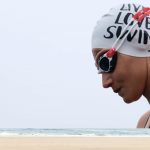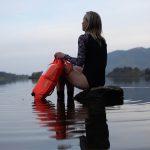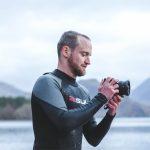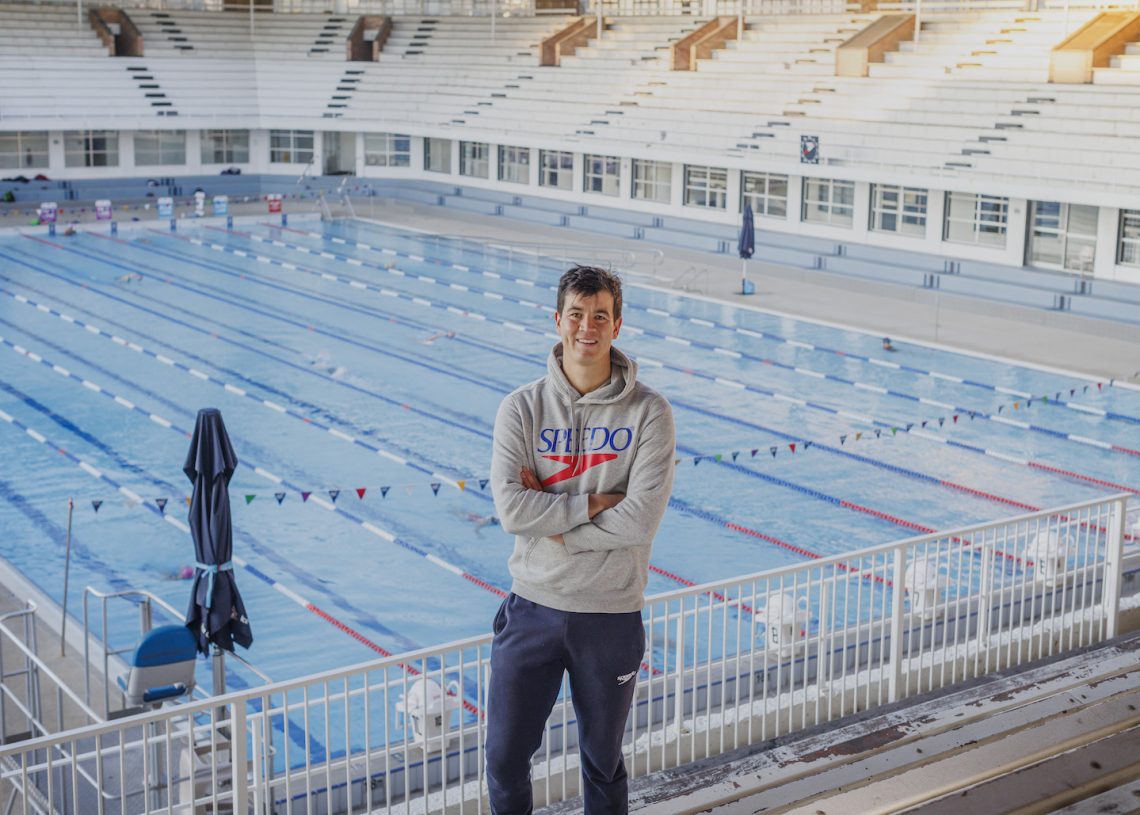
A training day in the life of Andy Donaldson
While he prepares for third part of his Oceans Seven challenge, we catch up with Andy Donaldson to find out about his training regime. What exactly does it take to become an Oceans Seven swimmer?
Ayrshire swimmer Andy Donaldson is almost a quarter of the way through his Oceans Seven swim challenge, having completed the North Channel crossing on 19 September.
Andy completed the swim from Donaghadee in Northern Ireland to Portpatrick in Scotland in a time of 9h, 13m, making him the first ever Scottish male to swim solo from Ireland to Scotland. The North Channel crossing is considered by many to be the toughest channel swim in the world due to its unpredictable weather, bitterly cold conditions and blooms of lions mane jellyfish.
While he’s currently in training for the third leg of his challenge, swimming the Gibraltar Strait, we thought we’d pull him up for a chat about his training regime, and what it takes to become an Oceans Seven swimmer.
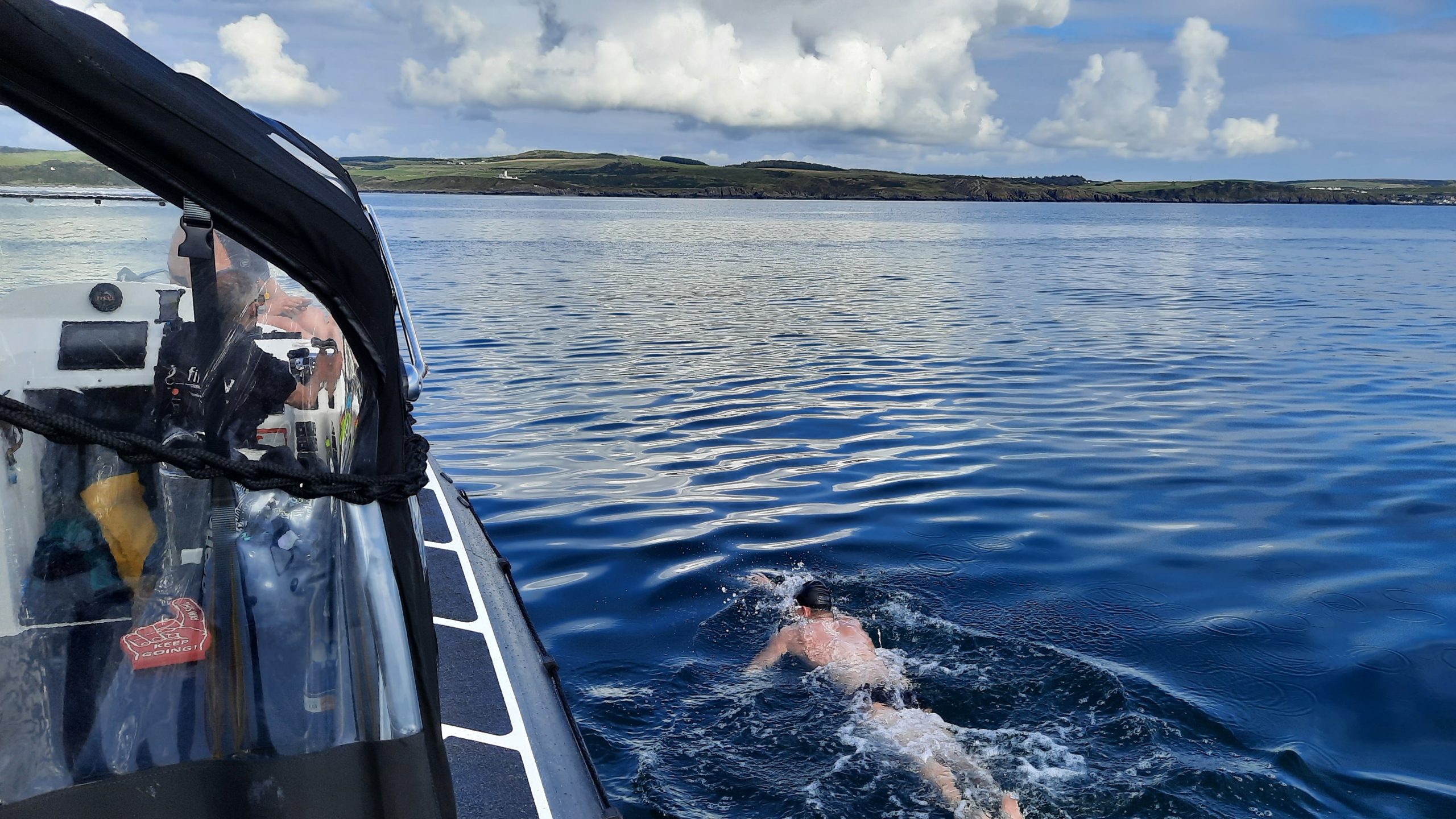
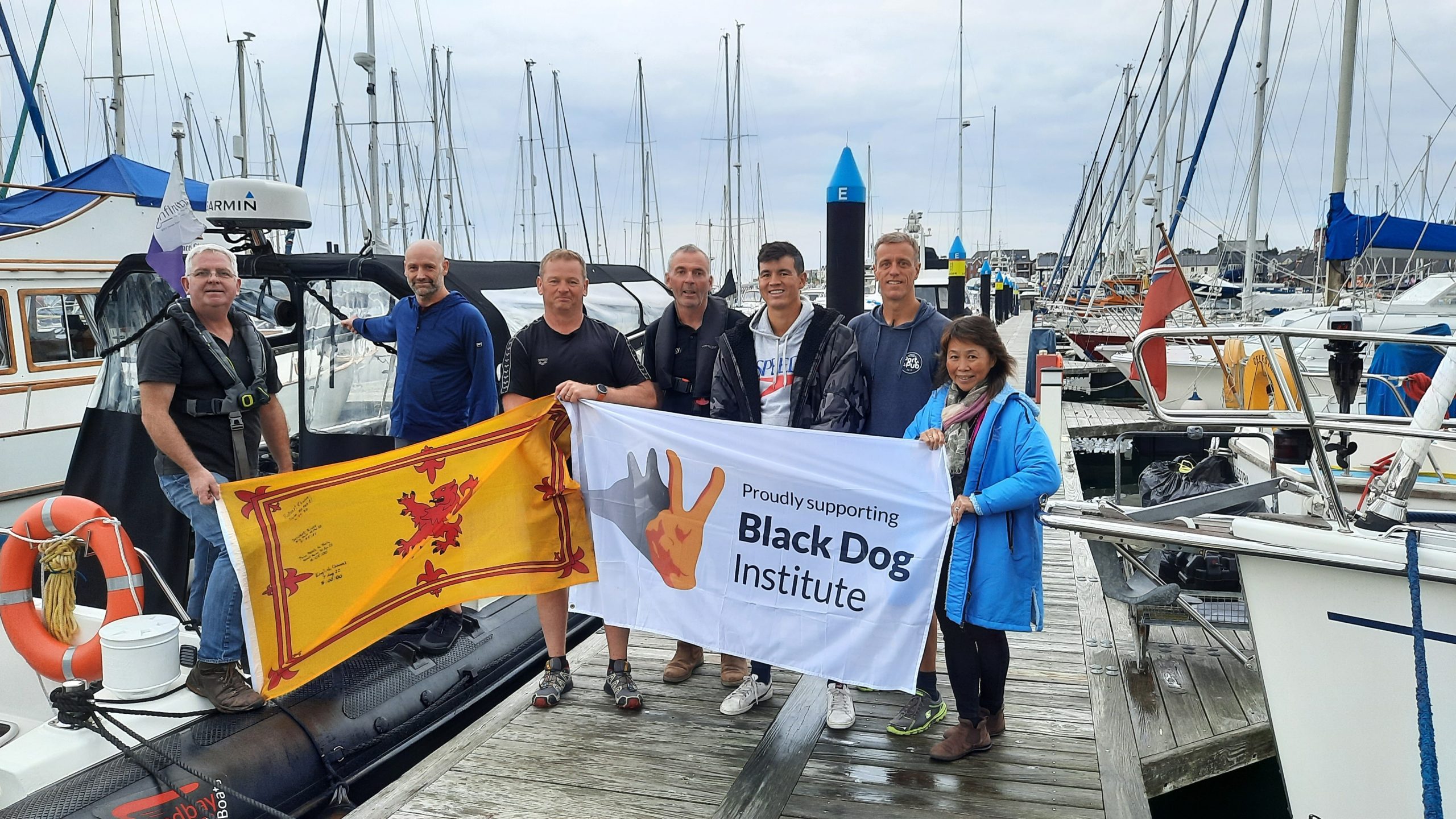
Andy, congratulations on completing the second leg of your Oceans Seven challenge. We’d love to know more about your training. Firstly, what time do you wake up?
I’m an early riser so I’m awake for 4:45am most mornings, with swim training starting at 5:30am at my local pool Beatty Park in Perth, Australia.
Like everyone else, there are some mornings where it can be really tempting to stay in bed (especially in winter as we train outdoors). Having said that, it becomes a lot easier to get up when you have something to train for and a reason to get you going in the morning.
What do you have for your breakfast, lunch, dinner and snacks?
Only in recent years have I come to appreciate the importance of good rest, recovery and nutrition.
As I can be training up to eight 2-hour swim sessions a week, plus two 1-hour gym workouts, I need to ensure I take on enough quality foods that will refuel my muscles, replenish my system, and help stave off any illness or injuries.
I usually keep food light before my morning swim, keeping it to toast or bananas.
After all workouts, I immediately have a snack (protein shake and a fruit and nut bar). For me it’s important to snack well and often for good recovery. Protein and magnesium provide your muscles with everything they need to rebuild, so I ensure they’re incorporated into my diet.
Breakfast tends to be a fruit smoothie (mixed berries, apple juice, a banana, strawberry protein powder), along with toast, eggs and avocados (and maybe bacon if I’m rewarding myself).
Lunch and dinner are quite flexible, though I try ensure most of the time I’m eating healthily and taking in foods that will provide good nutrients (for example, spaghetti bolognese, chilli con carne, baked potatoes with tuna sweetcorn, rice based meal, etc).
How does your training play out for the rest of the day?
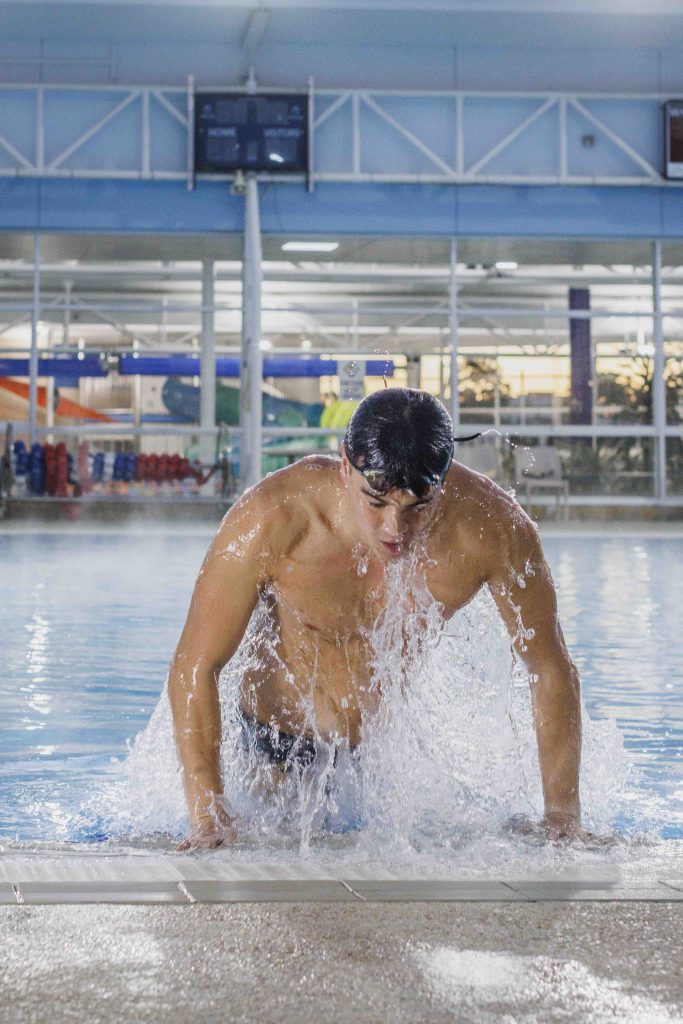
With this Oceans Seven journey it’s been a balancing act between training hard, getting the mileage in, staying fit and healthy, and working my job – I’m the Financial Controller of a large industrial cleaning business.
As many of the Oceans Seven swims are cold with temperatures ranging from 12° – 18° I try to get cold water swims in where I can. This is to help with acclimatisation and preparing my body for these challenging conditions. For us in Perth, this might be in the Swan River (15° during winter) or the ocean (18° rising to 22° in summer).
If it’s not a swim in the river, I train in the pool with my coach Eoin Carroll at Perth City Swimming Club. He’s an excellent coach and we work incredibly well together.
Gym is also an important part of my training program. My coaches at Formidable Strength and Conditioning are ex-swimmers and have great understanding of what is needed for these channels. My sessions focus on strengthening ligaments and enhancing muscle durability.
Do you visit a physio or masseur?
Yes! A physio, masseur, chiropractor – they all play such a huge role in this journey.
Like many swimmers, I’ve experienced injuries, niggles and setbacks, particularly with my shoulders. With the intensity of training, stress and load you’re putting your body through, it’s ever so important to stay on top of your recovery.
This network of support all help with that and ensure you’re getting the most out of your body during training sessions, and that you’re not pushing through an injury that may derail you in the long term.
The best athletes don’t have just one or two sessions where they train exceptionally, but rather they sustain a high level of training over a long period of time. Regular trips to the physio, chiro and masseur allows that to happen.
What time do you go to bed?
8:45pm is my usual bed time. Sleep is such an important aspect of recovery and I find that when I’ve been on the go all day, I fall asleep pretty quickly after my head hits the mattress.
And what do you do for your downtime? Do you allow yourself any indulgences or do you have to be really strict with yourself?
I enjoy spending time with family, friends, and getting outside at any opportunity possible.
I love the beach, the great outdoors and exploring so most weekends you would usually find me out on a hike.
When it comes to indulgences and the fine things of life, I’m not too strict and every now and then I have a drink and go out with friends.
For me swimming and goals such as crossing the English Channel are there to complement life, not take over it. It all comes down to balance and doing things in moderation.
To find out more about Andy’s Ocean Seven swim marathon, visit his fundraising page and follow Andy on Instagram for updates.







